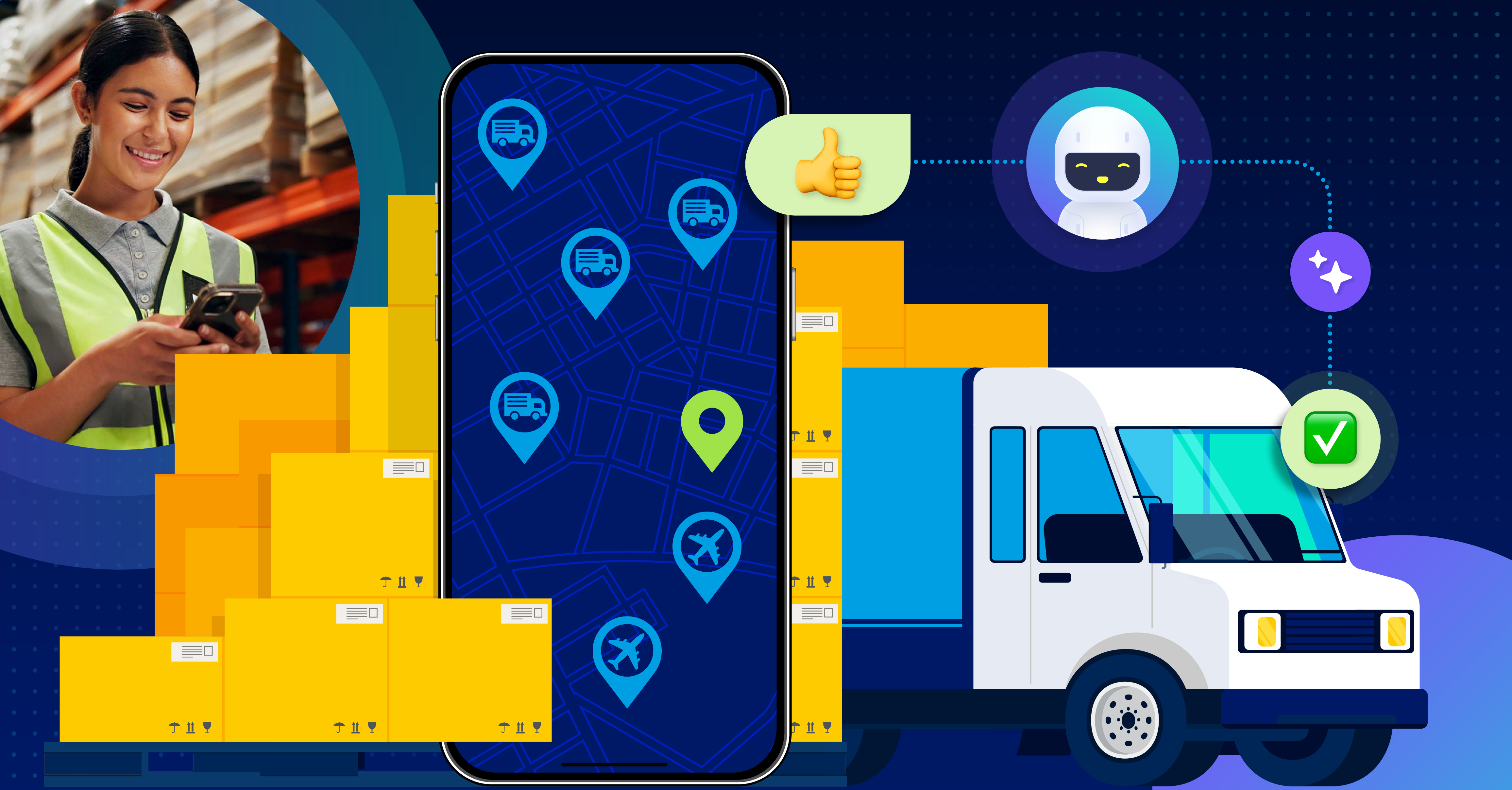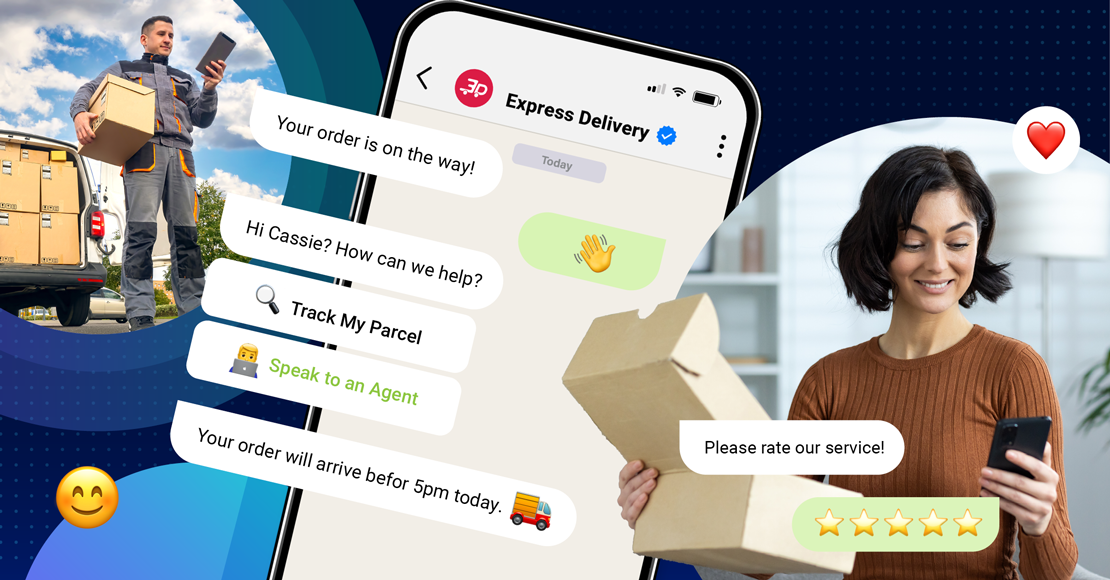
In logistics, speed alone no longer defines success. The true competitive edge lies in operational efficiencies and effective communication, and logistics leaders who harness the power of data, AI, and automation are pulling ahead. These three pillars are reshaping how logistics operations anticipate demand, resolve issues faster, and unlock new efficiencies at scale.
We’re not talking about analytics for the sake of reporting but for activating insights that drive smart decisions across the business, from optimizing self-service through chat to enhancing operations with AI-driven insights.
Data: From Volume to Value
Logistics companies sit on vast volumes of data from fleet tracking and warehouse logs to customer support conversations. But without the right strategy, data remains a liability, not an asset. A modern data architecture transforms raw data into usable intelligence by ensuring it is organized, accessible, and connected across systems. This lays the foundation for everything else, whether it’s predictive insights, automation, or faster response times. Key enablers of data maturity in logistics include:
Cloud-native platforms for real-time access and scalability
Standard APIs for seamless integration with legacy and modern systems
Data governance to ensure quality, compliance, and security
When aligned with business strategy, data becomes the fuel for a logistics engine that can power agility, innovation, and growth.
AI: The Intelligent Backbone
Artificial Intelligence is no longer a future-facing capability but should be viewed as an operational imperative. With thin margins, complex supply chains, and soaring customer expectations, logistics providers must shift from reactive problem-solving to proactive, intelligent orchestration.
In customer-facing logistics, AI-powered chat commerce enables smarter self-service, whereas virtual assistants resolve repetitive queries instantly while escalating complex issues, which intelligently reduces costs while increasing customer satisfaction.
Internally, AI also empowers operations, it:
Predicts disruptions before they affect delivery timelines,
Optimizes inventory based on real-time demand signals,
Automates routine decisions such as routing, reordering, or pricing, and
Detects and responds to risks across the supply chain with speed and accuracy.
But to see real value, AI must be embedded within everyday workflows, not siloed or experimental. And it must be governed responsibly, with a focus on ethics, transparency, and impact. But AI alone is not enough. To fully realize its potential, logistics companies must embed AI into workflows that are visible and actionable, and this is where chat becomes indispensable. AI-enabled chat bridges the gap between insight and action by making intelligence accessible, conversational, and operational:
Customers receive real-time updates on orders, delivery status, and disruptions via familiar messaging platforms like WhatsApp, reducing anxiety and call volumes.
Repetitive customer queries are handled by AI-powered virtual agents, freeing human staff to focus on complex issues that require judgment and empathy.
Smart routing and escalation ensure urgent customer issues are automatically prioritized and directed to the best available resource.
Internal teams are empowered with AI-suggested actions delivered through chat, from alerting the right agent about a delayed shipment to triggering inventory adjustments.
This combination between AI and chat streamlines operations and creates a competitive advantage by turning every conversation into a data point, every interaction into an opportunity, and every process into a smarter, faster, more scalable outcome.
Automation: Efficiency at Scale
Automation is the connective tissue between data and action. It ensures insights are translated into outcomes and not just ideas. In logistics, automation is reshaping both line-of-business and IT functions:
Process mining identifies where automation delivers the most impact
Routine tasks like data entry or document validation are easily automated
Workflow engines streamline communications across departments and vendors
Enterprise observability ensures systems run smoothly to avoid downstream service failures
For example, leading logistics providers use automated alerts triggered by delivery delays to proactively message customers via WhatsApp. Behind the scenes, AI routes urgent issues to top-performing agents or reroutes inventory based on predictive data models all in real time.
While many logistics companies still rely on fragmented systems to manage customer and inventory information, industry leaders are adopting chat commerce not just as a messaging tool, but as a central hub for operational efficiency to tie the fragmented pieces together. By consolidating conversations into a single, trackable interface like WhatsApp, businesses gain clearer visibility, faster turnaround times, and consistent service across regions.
Competitive advantage now hinges on turning data into actionable intelligence. Modern data architectures powered by cloud platforms and APIs unlock real-time visibility across fleets, warehouses, and customer interactions. This foundation enables predictive analytics, from forecasting delays to optimizing routes, while AI transforms operations with prescriptive insights like automated risk detection and dynamic inventory management.
Here’s how intelligent analytics delivers tangible results:
Imperial, a major logistics provider supporting over 2,000 stores, transformed their operations using a unified WhatsApp-based chat commerce solution shifted from scattered emails and untraceable phone calls to a unified WhatsApp-based experience. They created a single source of truth for all store communication, dramatically improving coordination, agent efficiency, and stakeholder access to key information. Their key metrics were as follows:
50% reduction in call center load, easing pressure on agents and improving operational efficiency.
Faster resolution times thanks to streamlined chat workflows and automation.
5x more efficient chat handling per agent, enabling higher productivity and quicker responses
Rolled out to 2,000+ stores, driving nationwide engagement and consistency.
On-demand, self-service data access, empowering teams with real-time insights at their fingertips.
“Clickatell has improved the way we interact with our stores. It's made data available to the end-user when they need to consume it rather than when we are ready to provide it to them. Chat Desk has also significantly improved the working conditions of our call center agents, allowing up to five chats open at a time, whereas previously an agent could only do one voice call at a time. By automating many of the repetitive tasks, our agents are now free to focus on more challenging and profitable work.”
As Imperial’s success demonstrates, this move not only streamlined daily operations but also laid the groundwork for more scalable, responsive logistics communication across their entire network. And it showcases that embedding data, AI, and automation into core logistics processes through the interface of chat isn’t just about efficiency, it’s about redefining performance.
The Takeaway: Chat is the Differentiator
In a logistics landscape where every minute, mile, and message matters, companies that embrace chat to harness data, AI, and automation, gain operational efficiency and strategic edge. These organizations move fast and can:
Predict disruptions before they occur
Automate processes with confidence
Deliver consistent service backed by real-time insight
And perhaps most importantly, they position themselves for the future, one where logistics is defined not just by what you deliver, but how smartly you deliver it.
Are you ready to make your operations smarter, faster, and more data-driven?
Let’s talk about how your business can lead with insight.
Step into the future of business messaging.
SMS and two-way channels, automation, call center integration, payments - do it all with Clickatell's Chat Commerce platform.







